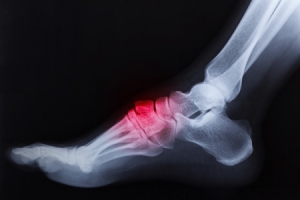Connect With Us
Blogs
Displaying items by tag: stress fractures
5 Pre-season Tips for Young Athletes
Fall sports practices are in the works and for children and teens that have spent the summer on the couch with a phone or video controller glued to their hands, it can be a shock to their feet to begin a strenuous sports routine. Below are 5 ways we at Superior Foot & Ankle Care Center recommend to ease the transition and protect young feet:
- Start working out. Have your child contact their coach for some suggested pre-season warm-ups. Stress fractures, Achilles tendonitis and other overuse injuries are common when patients overdo physical activity after being a couch potato for a couple of months.
- Find active ways to enjoy family fun. There’s still time for family bike rides, hikes, rollerblading and other physical activities. Not only will this help everyone get in better shape, it’s a great way to enjoy some time together before the hectic fall schedules kick in.
- Read up on a favorite athlete. Who is your child’s sports idol? Encourage them to look up interviews and information about how he or she trains during the offseason. It may give your child the incentive and inspiration necessary to get started.
- Buy new shoes. If your child is starting a sport it’s a good idea to get athletic shoes designed to support their feet for the activity they will be doing. Go to a professional fitness shoe store to get fitted and learn about the best options for your child’s foot. If your child is returning to a sport, check to see that their shoes fit and that there is no evidence of excessive wear. Worn soles, stretched out heel counters and creased uppers are all signs that it’s time to replace the shoes. Wearing shoes that are stretched out or falling apart invites injuries.
- Get a podiatric checkup. This is particularly important if your child has had an ankle sprain, fracture or other sports injury in the past. Our podiatrists, Dr. Victoria Foley and Dr. Constance Omelas will examine your child’s foot to ensure that the injury is completely healed. To make an appointment at our Long Beach office, call: (562) 420-9800.
Stress Fractures and Vitamin D
With approximately 25% of all the bones in your body residing in your feet, fractures are an important concern here at Superior Foot & Ankle Care Center. A general fracture, one that goes all the way through a bone, usually occurs as the result of an accident or other trauma and is immediately apparent. There is a second kind of fracture, however, that is not always so obvious: a stress fracture. Stress fractures are tiny fissures or cracks in the surface of a bone. They typically occur in the area from the middle of your foot extending to your toes, also called the forefoot.
Symptoms of a stress fracture are similar to those of a general fracture:
- Pain
- Swelling
- Bruising at the site of injury
- Tenderness
- Difficulty bearing weight on the affected foot
The difference, however, is in the way the symptoms present. Often with a stress fracture the discomfort will be intermittent; worse when you are active and on your feet and better when you are resting your foot. That’s why it’s important to make an appointment at our Long Beach office if you experience any of the above symptoms even if they don’t seem very intense. Our podiatrists, Dr. Victoria Foley and Dr. Constance Omelas will be able to determine if you have a stress fracture or if your symptoms are due to another condition.
One important way that you can help prevent stress fractures is by making sure that you have an adequate intake of vitamin D. Although calcium seems to get all the credit when it comes to bone strength, it’s actually vitamin D that enables your body to absorb and regulate the calcium.
Many people have a vitamin D deficiency and don’t even realize it. Vitamin D deficiencies are more common if you have one or more of the following factors:
- Being over 50
- Limited sun exposure (the sun being a good source of vitamin D)
- Dark complexion
- Overweight
- A medical condition that causes fat malabsorption
Your doctor can do a blood test to check your vitamin D levels.
Other ways to help prevent stress fractures include avoiding injury and repetitive activities that put pressure on the forefoot. If you believe you may have a stress fracture contact us by calling: 562-420-9800.


